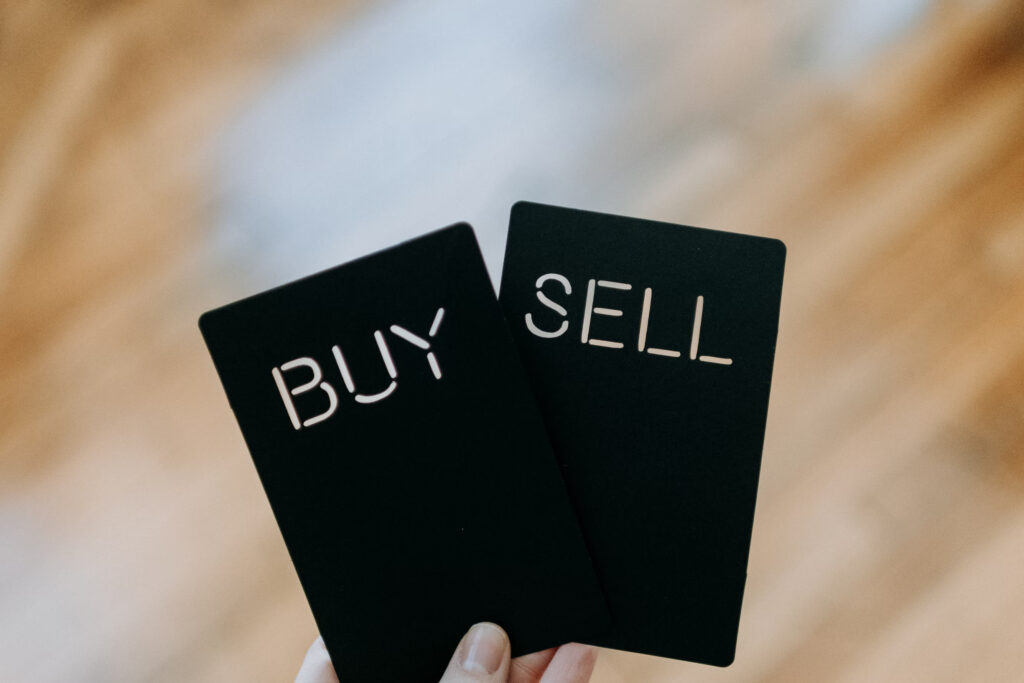BDSM: Bonds, derivates, stock market, or How to overcome overtrading and handle trading psychology?
It is 3 AM and you are still staring at those red candles on your screen. You should go to sleep, but you are afraid of losing the last chance to buy floor price. In fact, the only thing you are losing is control over your life. The whole situation makes you crappy. Sounds familiar?
Trading is like a roller-coaster. Once you are up, and once you are down, but anyway, it is very important not to become addicted to trading. Logically, it is not suitable for your overall mental health and well-being. Is there any possibility of not falling into the trap? Yes, you can avoid this phenomenon as we provide several tips on how not to become a trading slave. Please, make yourself comfortable, thanks to this article you will avoid the stress.

Before you get into the topic, we explain several terms and abbreviations to have basic knowledge. If you are an experienced trader or investor, skip this part. If you are a newcomer, let us guide you:
FOMO
Fear of Missing out is a phenomenon when one is stressed out about not being up-to-date. Buyers are under pressure, so they buy assets as they do not want to miss out on a rising trend.
Hodl
For newbies, the term “hodl” refers to the process of buying assets (mainly cryptocurrency) and holding them long-term. According to the Investopedia article, ”HODL” originated as a misspelling of “HOLD” (written in all caps), in an online post by an early Bitcoin investor.
To buy top
A top in finance refers to the peak price of an asset during a trading period before it begins a downward trend. It is the highest price. Most traders intend to buy assets at a low price and sell them at the top price to make a profit.
What is overtrading?
First of all, we are going to define the term overtrading. According to Investopedia, overtrading refers to excessive buying and selling of stocks by either a broker or an investor. Of course, not only stocks are tradable on the market. It is possible to apply it to any type of market. We can incorporate here ETFs, commodities, bonds or cryptocurrencies, just to name a few.
Overtrading is also caused by such emotions as fear, excitement and greed. The phenomenon can damage your portfolio, but the bigger threat is a harmful effect on your overall health. As you put yourself in this overtrading position, you can feel exhausted, stressed and anxious: Your decisions are less logically controlled, and your actions lead to poor results. You are stuck in a cycle. Chin up! You can do something about that.

1. Identify your overtrading threshold
Each trader has a different threshold for handling excessive trades. Try to find out, how many trades you are capable accomplish without frustration. If earlier you set your boundaries, you will more likely prevent yourself from overtrading.
2. Make a trading plan and stick to it
Plan ahead your future expenditures on trading. Put yourself as many questions as possible: How much are you willing to spend and lose? What assets are you going to buy? Where do you consider allocating your money? How do you want to diversify your portfolio? How long are you capable of holding any assets? Or do you even consider holding anything? Those are the real questions. It is hard to predict market development. Take into account many factors (not only those economical). Define risk management and trading style, namely scalping, day trading, swing trading and position trading. Also, try to calculate your desired risk-reward ratios and maximum per trade.
3. Take control over your emotions, not vice versa
Emotions take part a huge role in the process. Never let them bring you down – decisions made under emotional pressure are not logical, but rather more intuitive. Many traders are prone to suffer from FOMO. They are in the fear of losing the last chance of buying the dip for an affordable price. Excitement is another one that leads to hurried decisions. Traders are tempted to jump on the bandwagon without proper analysis. Greed motivates traders to spend another bunch of money because they have previously made a profit. It is like a lottery. Take one or two steps back and ask yourself, what emotions enter into the game.
These are the most common emotions and feelings that can appear while trading:
Boredom – may result in overtrading. Traders risk in trades that are less probable to win.
Anger – losing on several trades can make people feel bad about the whole situation. In anger, they enter risky positions to take revenge.
Fear, uncertainty, and doubt – are also known as FUD. Traders under these feelings tend to sell bottoms (and others grab this opportunity and buy those poor weak-minded individuals’ sales). For a particular group of people, it is a good marketing tactic.
Greed or FOMO – some traders to earn more are prone to buy tops.
4. Turn down trading news
It is a good thing to stay up-to-date with the latest trends until the point when everything turns over. Try not to be cautious with hot news presented by mass media. They want your attention and the best way to do it is to publish or broadcast controversial topics with a catchy title. “The market is bleeding” is better clickbait than “A 10% to 15% correction could be a significant opportunity”. These distractions trigger the emotional decision-making we have covered in the paragraph above.
5. Take a break
Give yourself a good dose of the rest. Maybe, in a certain situation, it is better to “hodl” than to keep an eye on the graph every single second of your life. Cut off all market stimulants, and step away. You can check those green or red candles over time. It could be for a few hours, days, weeks, months, or even years. After recurring your mental state, and repurposing your financial goals, you will be able to make decisions more consciously and with a clear mind.
To overcome uncertainty and bad feelings over trading, you can follow these quick tips for inspiration:
- Set a hard stop for your trade – if particular criteria are met, the trade will be closed at a certain amount of money.
- Risk only what you can afford to lose – do not bet money that is crucial for your basic needs and life. It is very important to have solid savings aside.
- Have a quality sleep, which means – do not open big positions throughout the night. Also, set up a stop loss (SL) and a take profit (TP) when placing an order.
- Keep your mind busy with real work – do not be a trader full-time. Find a job in a different field than trading and observing markets.
- Apply Warren Buffett’s strategy – keep 50% of your assets in stablecoins, and as market dumps, you are buying, and as market pumps, you are selling. In this case, you can react more flexible to market changes.
Here is it! 5 simple steps that help you to overcome overtrading. We can ensure you, that our market analysis app will be there for you, also while you take a break. You can still come back and check the situation in a more controlled way. Just do not let those peaks ruin your life. Take it more like a big picture, and look at things in the long term. Everything on the market has its purpose and the best way to play this game is not to be blown away by the situation.





